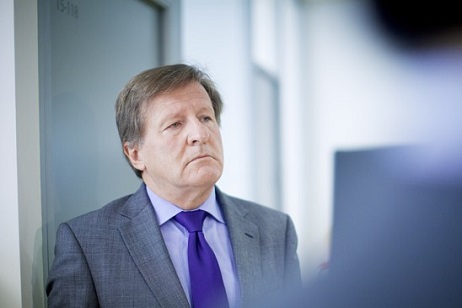EU recognises Georgia’s progress before Riga Summit

The six Eastern Partnership (EaP) countries are looking forward to the Riga Summit to see concrete steps taken that will get them closer to the European Union (EU), however the EU has not yet decided what to offer its partners.
Today the EU presented the EaP states' 2014 progress reports, where Georgia's achievements were positively assessed.
EU Ambassador to Georgia Janos Herman spoke to media in Tbilisi today and said the EU was currently working on the final communique for the Riga Summit. He did not specify what this document would envisage.
Herman said there were several ideas currently being discussed regarding the EU support packages for EaP states (Armenia, Azerbaijan, Belarus, Georgia, Moldova, and Ukraine), of which the most popular approach was preparing separate packages for each country. However, he said preparing a joint package of offers for all of the six countries was also a possibility.
"So I don’t know what kind of packages there will be, but there will be packages [at the Riga Summit], Herman said.
Georgia's progress in 2014
Meanwhile today, the EU Ambassador presented the report assessing Georgia’s progress made in 2014. This was the first report after the country signed the EU Association Agreement last summer.
Herman positively assessed Georgia’s key developments and reform efforts in 2014 and marked further recommendations for the year ahead.
The report said Georgia continued the democratic transition of the country including with regard to human rights and fundamental freedoms:
Local elections in June and July 2014 were generally in compliance with international standards, even though freedom of association and assembly were not fully ensured during the campaign.
According to the report, Georgia also initiated a constitutional reform.
In the justice sector, Georgia launched a reform of the Prosecutor's Office and made efforts to improve the independence of judges.
"However, judicial independence remained fragile,” Herman said.
He stressed Georgia's prison system, the protection of children's rights and media freedom had improved. The fight against corruption had intensified and the country's data-protection system had improved.
The EU Ambassador positively assessed the adoption of the anti-discrimination law last year but said the rights of minorities remained to be improved further.
Recommendations
On the basis of the Country Progress Report, several actions were recommended to Georgia for the 2015 year. These were:
- Ensuring separation of powers and checks and balances between executive, legislative and the judicial powers in the framework of constitutional reform; improving the political climate, amongst others, by ensuring space for opposition and cross-party dialogue;
- Reforming the justice system to ensure full independence of the judiciary;
- Increasing the accountability and democratic oversight of law enforcement agencies;
- Participating constructively in the Geneva International Discussions; enhancing Georgia’s engagement policy towards the breakaway regions and take pragmatic steps to further open channels of communication and to encourage trade, education, travel and investment across the administrative boundary line;
- Continuing close cooperation with the EU Special Representative (EUSR) for the South Caucasus and the Crisis in Georgia and the EU Monitoring Mission in Georgia (EUMM);
- Continuing sectorial reforms and ensuring a high standard of approximation to the EU acquis in order to successfully implement the AA/DCFTA; raising public awareness and visibility of the AA/DCFTA and merits of political association and economic integration with the EU.
 Tweet
Tweet  Share
Share